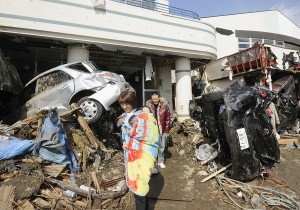Big quakes no more likely than in past—study
WASHINGTON—Massive earthquakes are no more likely today than they were a century ago, despite an apparent rise of the devastating temblors in recent years, US researchers said on Monday.
The deadly 9.0 earthquake this year in Japan, an 8.8 quake in Chile last year and the 2004 Sumatra-Andaman earthquake that registered 9.0 on the moment magnitude scale have raised alarm in some science and media circles that such events may be linked.
But researchers at the University of California went back over the world’s earthquake records dating back to 1900 and found over time there was no statistically significant rise in the number of big quakes 7.0 and higher.
“One has to be careful, because humans have a tendency to see patterns in random sequences,” lead author Peter Shearer of the UC Berkeley Department of Statistics told AFP.
“So what we wanted to do here was apply statistical tests to see whether you could say it wasn’t just a random sequence of events,” said Shearer, whose study appears in the Proceedings of the National Academy of Sciences.
Article continues after this advertisement“Those tests showed that you can’t say that it is not random; that is, there is not a statistically significant degree of the clustering of events,” he said.
Article continues after this advertisementEven though there is “a disproportionate number of very large 8.5 earthquakes between 1950 and 1965,” there were uncommonly fewer of these during a much longer period afterward from 1965 to 2004.
And although there has been a more frequent rate of 8.0 and larger quakes since 2004, with the last five years in particular at a record high, “there have been rates nearly as high in the past,” said the study.
The researchers also looked for any clues from the Earth’s crust that could explain why or how big quakes might be linked.
“And the conclusion was no, there isn’t a likely physical cause that would link for example a large earthquake in South America to one in Japan,” Shearer told AFP.
“The events are just too far away for it to be very likely that there is a physical link between them.”
Taken together, the two approaches “suggest that the global risk of large earthquakes is no higher today than it has been in the past,” concluded the study.
The findings are in line with a study in Nature Geoscience earlier this year that found the regional hazard of larger earthquakes is increased after a main shock, but the global hazard is not.
That study countered an earlier 2009 paper in Nature that suggested seismic waves might have an effect on distant fault lines, potentially increasing the risk of earthquakes far away.
